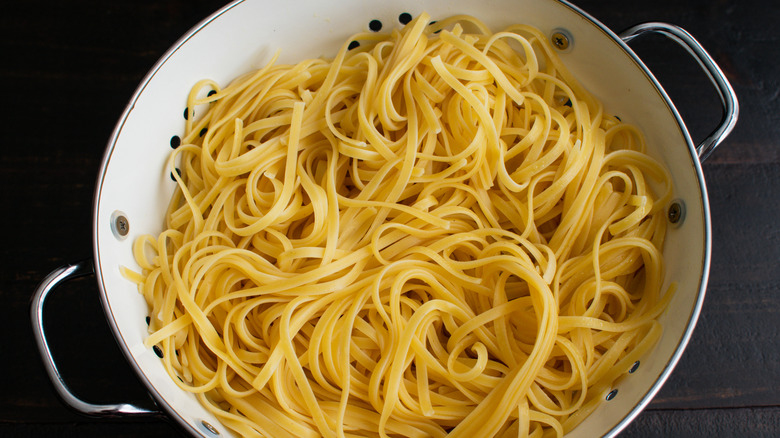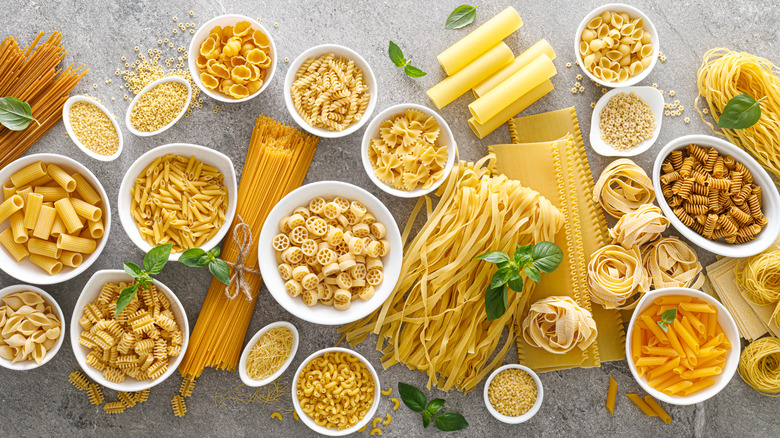Why Your Colander May Be The Culprit For Overcooked Pasta
Overcooked pasta can be floppy or just plain mushy, depending on the type of noodle you've selected. No matter the style of pasta, if it's overcooked, it's not as appetizing and only gets softer when it sits in sauce. The preferred way to cook and eat pasta is when it's prepared al dente style. The phrase al dente is Italian and can be translated as "to the tooth" and means there should be a slight bite to the pasta, according to Delish.
Making sure you achieve an al dente pasta can happen by cooking pasta for a couple minutes less than the suggested time stated on the box, as noted by The Petite Cook. Unfortunately, the line between pasta perfection and overcooked can be small and overcooked pasta can happen in a short time. Besides setting a timer, it's also important to make sure you're using the right equipment.
The best kind of colander for pasta
Believe it or not, the colander you use can play a role in whether your pasta comes out overcooked, per America's Test Kitchen. That's because some colanders don't drain water in the most efficient way and cause noodles to stay submerged in hot water as it drains away. Like many tools in the kitchen, the colander comes in a variety of materials — metal, plastic, and silicone — as well as in a number of different sizes and drainage hole shapes.
Using a colander with the right drainage holes can make all the difference when cooking pasta, especially when it comes to small shapes like orzo or the delicate strands of angel hair. Draining in a colander with too large of holes means you can lose much of your pasta down the sink along with the water. The Spruce Eats has a guide for the best types of colanders, and their best overall recommendation is using a stainless one with micro-perforation rather than one with larger holes to let water drain quickly while keeping small pasta in the colander.

